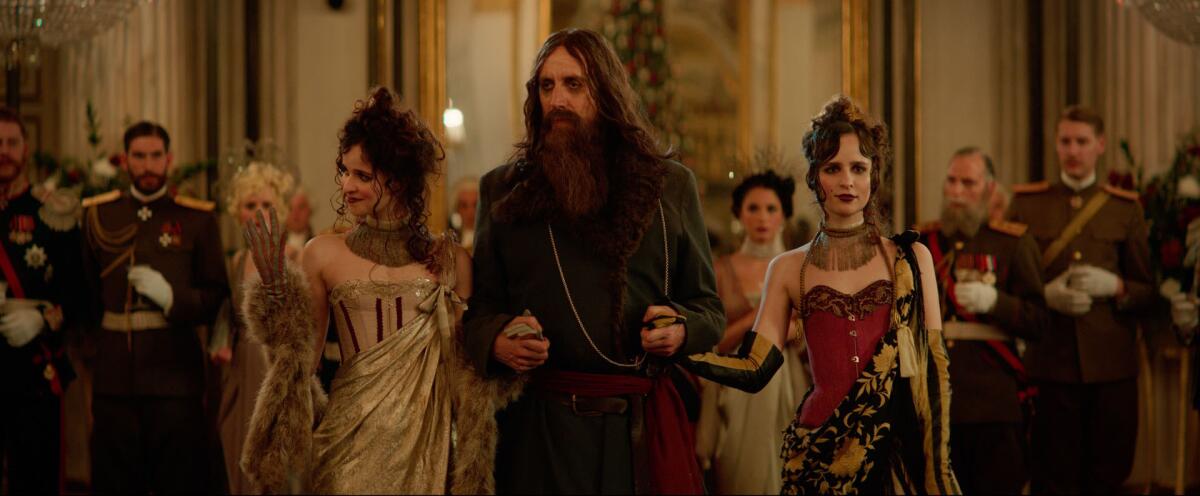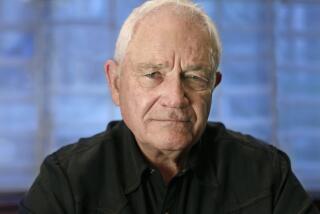Review: ‘The King’s Man’ is a truly unnecessary prequel

- Share via
The Times is committed to reviewing theatrical film releases during the COVID-19 pandemic. Because moviegoing carries risks during this time, we remind readers to follow health and safety guidelines as outlined by the Centers for Disease Control and Prevention and local health officials.
As the third installment in his “Kingsman” series, director and co-writer Matthew Vaughn has made “The King’s Man,” a prequel meant to explain the origins of the secret intelligence agency run out of a Saville Row tailor shop in London. Opening in 1902 South Africa, the story jumps forward to 1914 and continues on against the backdrop of World War I and the Russian Revolution.
The historical setup for this prequel misses perhaps the most essential element of the previous “Kingsman” pictures: the tension between a traditional buttoned-up, finely tailored conception of British-ness and the contemporary reality of streetwear and slang. Could James Bond wear a tracksuit? The new film can’t replace that with anything other than a playfully mischievous attitude toward history, as “The King’s Man” makes numerous jabs at colonialism while contradictorily being essentially pro-monarchy. The film’s politics are not exactly sophisticated, motivated more by the convenience of the moment than any cohesive worldview.
Ralph Fiennes plays Duke Orlando Oxford, who after seeing his wife (Alexandra Maria Lara) killed becomes obsessed with protecting his son (Harris Dickinson) by keeping him in seclusion on their family estate, looked after by his trusted servants Shola (Djimon Hounsou) and Polly (Gemma Arterton). Somehow or other Oxford is called into service to thwart the plans of the mysterious Scottish separatist known as The Shepherd, who runs an Illuminati/Dr. Evil style council of international troublemakers. Tom Hollander plays the targets of The Shepherd’s ire, cousins King George of England, Kaiser Wilhelm of Germany and Czar Nicholas of Russia. Arterton and Aaron Taylor-Johnson (playing a literal stand-in) in particular give off strong “put me in, coach” vibes whenever they are in a scene, as if they could be doing much more if only given something more to do.

Fiennes has shown himself to have surprising reserves of bawdy, outrageous energy in performances in films such as “The Grand Budapest Hotel” and “A Bigger Splash,” but here he never finds another register for Oxford to exist in. He is forthright and charming — and when he is strolling along with his bowler hat and umbrella recalls his performance in 1998’s ill-fated remake of “The Avengers” — but Fiennes often feels hemmed in, a straight man in search of a punch line.
It is Rhys Ifans as Rasputin who gives the film its biggest jolt of much-needed energy, playing the Russian mystic as a kinky sybaritic con-man. The film’s best scene is Ifans’ big action set piece, fighting hand-to-hand with Fiennes, Hounsou and Dickinson in varying permutations to the manic sounds of Tchaikovsky’s “1812 Overture.” The sequence has an uproarious aliveness that is sadly missing elsewhere in the film.
Vaughn has often reveled in a certain transgressiveness — the first “Kingsman” ended on a bawdy sex joke that garnered some small infamy — and so the film includes an end credit scene that points to an ahistorical character reveal that is in equal parts bad taste, obvious and stupid. With other “Kingsman”-related projects in the works, it is downright diabolical for Vaughn to make audiences even imagine a sequel to this unnecessary prequel simply to see if can be as outlandish as promised. Now that’s a truly evil scheme.
'The King's Man'
Rated: R, for sequences of strong/bloody violence, language and some sexual material
Running time: 2 hours, 11 minutes
Playing: In general release
More to Read
Only good movies
Get the Indie Focus newsletter, Mark Olsen's weekly guide to the world of cinema.
You may occasionally receive promotional content from the Los Angeles Times.











